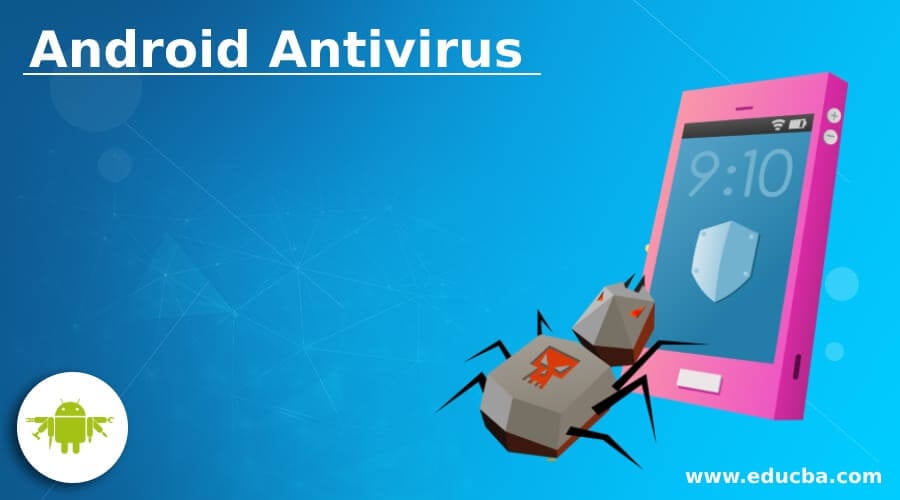Updated June 1, 2023

Introduction to Android Antivirus
Android antivirus apps continue to be one of the most common Android applications. If you play it safely, just download applications from the Play Store and leave your security settings on; you don’t need an antivirus program. However, other people want to walk in the wild and don’t do this. There are a lot of weak antivirus programs out there. Even if these apps aren’t required, the healthy ones that don’t have problems are good to know. Here are the most common Android antivirus and anti-malware applications.
List of Android Antivirus
Given below is the list of Android Antivirus:
1. 360 Security
360 Defense is a little bag-mixed. Some protective features are not half bad, and the other half is pretty bad. The app checks your software for suspected malware behavior, but its rate is a little higher than we would believe. It’s all wrong with Facebook, but the malware isn’t yet. This good, super simple antivirus program can search and view possible faults. There are also several functionalities in the app, like a phone booster. We suggest they don’t work because they can make your telephone more powerful.
2. Avast Antivirus
Avast Mobile Security is one of every platform’s most common antivirus applications. It has more than 100 million installs. Apps such as a classic antivirus scanner, an app lock, a call buffer, support for theft locks, a photo boom, and even an Android system firewall. It’s an outstanding tool even though you’re not often in need of the antivirus component. A few booster functions are also provided, but these should be avoided. Comparatively speaking, Avast subscription rates are not bad. The software contains a 14-day free demo run.
3. Bitdefender
Antivirus Bitdefender is one of the few free antivirus software programs. Over the years, it didn’t change a thing. It offers a simple scan feature, an easy GUI, fast performance, and no setup. This is perfect for super foundational needs. Scan things and lie there waiting for things to be scanned again. The Bitdefender app is more vital and more profound. However, we think this one is better for those who want something easy. It is also free, with no buys or subscriptions in apps. However, there’s publicity.
4. Web Security Space
Dr. Web is one of the oldest malware and antivirus software. It features many functions, including fast and complete scans, ransomware security, a quarantine room, and statistics. In addition, there are strong theft controls, calls and SMS filtering, URL filtering, parental controls, firewalls, etc. It’s very cheap, too. For one or two years, it costs $7.99-$15.99. A lifetime license for $74.99 is also valid. The lifetime license is costly, so if you want to go down the road, it is a chance to get off the monthly subscription.
5. Lookout Security
Lookout is another common anti-virus and malware program. It comes on many devices pre-installed, particularly on T-Mobile carriers. It’s very nice with the fundamentals. This covers scans and security against phishing, ransomware, fraud, and more. It also features odd items like identity authentication, identity insurance, and wireless Internet access. That makes it something distinctive from most antivirus applications. The rate each month is $2.99 or yearly $29.99. For an anti-virus or anti-malware program, this is fairly fine.
6. Norton Mobile Security
It has ups and downs in Norton Defense. Imagine how much worse it would be if we brought it here. However, the program has many foundational aspects like ransomware, spyware, and other bad stuff. Other features include battery-low, real-time security, anti-theft capability, and more to save the status of a computer. This is one of the best solutions for antivirus software. It has an annual suite for $39.99, including your mobile device and computer. Norton also has other applications that aren’t half bad, including a dedicated app.
7. Trend Micro Antivirus
Trend Micro is a good overall choice for antivirus applications. It features the usual things like system scans and monitors whether or not programs are malware. The secondary features are the most significant, as are most. This includes malicious applications’ prevention, a site safety tool, a public Wi-Fi regulation, and a financial transaction security feature. This is not exactly like other antivirus programs, which search for ransomware and do some random things. It appears to sit in the cabin. Certain features are free, but you need to get the cool thing from your $4.99 / month or $19.99 / year membership.
8. Google Play Protect
The Android antivirus software for Google Play Protect. The applications on your computer are scanned and matched with copies of the app in Google Play. It helps you to know if the two aren’t the same. Combined with the current Google Play defense, this provides a relatively strong security firewall. Moreover, it’s easy, probably on your computer, and there’s nothing you have to do to use it. It fits best with common sense and is better than any antivirus program, regardless of the business. It would also save precious energy in the context of a lesser app.
Conclusion
In this article, we have seen various antivirus apps to protect Android devices and their features.
Recommended Articles
This is a guide to Android Antivirus. Here we discuss the introduction and the list of Android antivirus, respectively. You may also have a look at the following articles to learn more –

